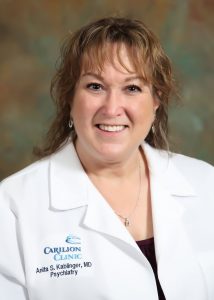Collaborators
Sarah Marks, MD, MA, FAAFP

Dr. Sarah Marks, MD is a Family Medicine Specialist in Lexington, KY and has over 12 years of experience in the medical field. She graduated from University of Kentucky Medical School in 2010. Dr. Marks serves as one of the medical supervisors on the laboratory’s alcohol studies.
Christopher T. Franck, PhD

Dr. Franck is an Assistant Professor in the Department of Statistics at Virginia Tech. His research interests focus on Bayesian model selection and averaging, objective Bayes, and spatial statistics. He is also interested in the the design of experiments and statistical applications in fields such as biology, bioinformatics, and medicine. Click here to read more about Dr. Franck’s work.
Anita S. Kablinger, MD, CPI, FAAP, FAPA, FACRP

Dr. Kablinger has conducted over 160 trials as PI or sub-investigator for industry, academia and NIMH. Her research has been in the areas of psychosis, mood disorders and substance abuse that run the continuum of children and adolescents to geriatric populations. Clinically she focuses on outpatient treatment resistant mood disorder patients.
As a Psychiatry Program Director for 15 years, Dr. Kablinger enjoyed mentoring undergraduate students, graduate level residents and junior faculty in patient care, education, and research. As Professor and Director of Clinical Trials Research in the Department of Psychiatry and Behavioral Medicine, she now devotes her academic role in expanding, mentoring and teaching clinical research within Carilion Clinic Psychiatry, the Virginia Tech Carilion School of Medicine and the Fralin Biomedical Research Institute.
William W. Stoops, PhD

Dr. William W. Stoops, a Professor in the Departments of Behavioral Science, Psychiatry and Psychology at the University of Kentucky, earned his Bachelor’s degree in Psychology from Davidson College in Davidson, NC and his Master’s degree and Ph.D. in Psychology from the University of Kentucky. His research evaluates the behavioral and pharmacological factors that contribute to drug use disorders, focusing primarily on stimulant drugs. He is leading a large clinical trial evaluating non-abstinence outcomes in cocaine use disorder and is also principal investigator on human laboratory studies determining the role of orexin and serotonin 5-HT1b systems in the abuse related effects of cocaine. Dr. Stoops is currently president of the College on Problems of Drug Dependence and is editor of Experimental and Clinical Psychopharmacology.
Bethany Raiff, PhD

Bethany R. Raiff, PhD is a Professor in the Department of Psychology at Rowan University. Dr. Raiff received her PhD in Psychology, with an emphasis in Behavioral Pharmacology, from the University of Florida in 2008. Dr. Raiff’s primary research activities involve developing and testing the integration of technological innovations with behavioral interventions for promoting drug abstinence and other health behavior. Currently, Dr. Raiff is refining and testing an Internet-based intervention that involves delivering incentives contingent on objective evidence of smoking abstinence in adult smokers. In addition to her work on smoking cessation, Dr. Raiff received an NIH grant to apply the same Internet-based monitoring system used with smokers to a novel behavior and population – to increase adherence with blood glucose testing recommendations among non-adherent teens diagnosed with Type 1 diabetes.
Cody Bumgardner, PhD

Cody Bumgardner is an Assistant Professor in the Department of Pathology & Laboratory Medicine. He received his BS in Computer Engineering and his PhD in Computer Science from the University of Kentucky. He works in the area of medical informatics, with a focus on pathology and laboratory medicine. His primary research interest focuses on the application of edge computing, real-time complex event processing, and machine learning in clinical decision support. Before transitioning to a clinical faculty position, Cody spent over 20 years a wide-range of positions comprised of strategic planning, technical, and leadership roles in the areas of IT architecture, software development, networking, research, systems, security, and healthcare.